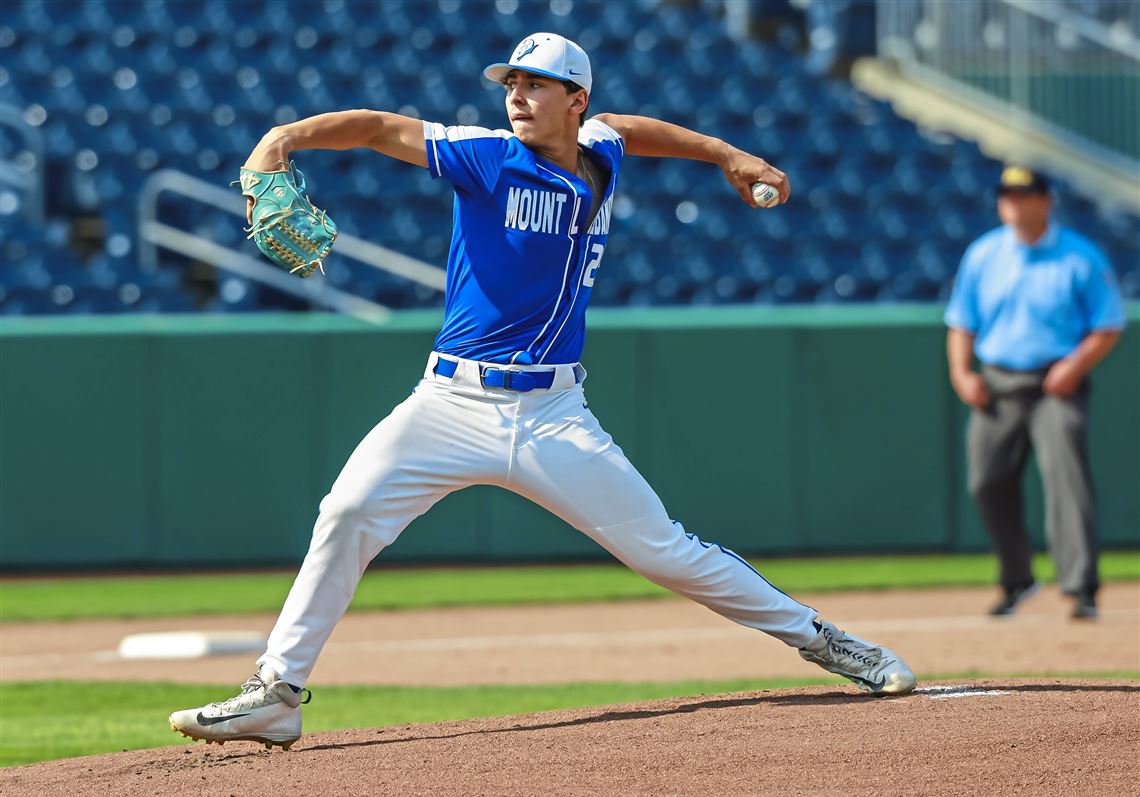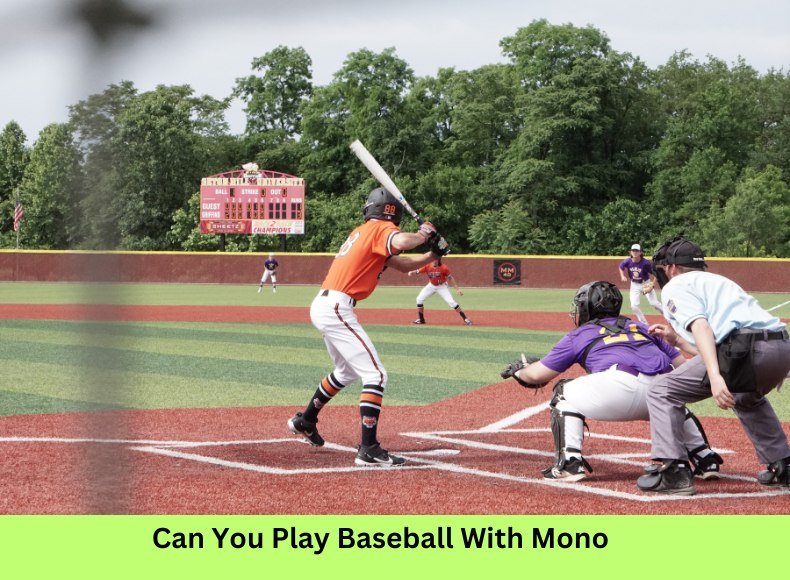It would help if you did not play baseball with Mono. It can lead to severe complications and prolonged recovery.
Mononucleosis, commonly known as mono, is a viral infection that can cause extreme fatigue, fever, and swollen glands. Engaging in physical activities like baseball while infected increases the risk of complications, especially spleen enlargement, which can rupture from impact. Rest is crucial for recovery.
Playing sports too soon can delay healing and worsen symptoms. Consult a healthcare professional for personalized advice and a safe return to physical activities. Prioritizing your health over returning to sports ensures a full and swift recovery.
Introduction To Mono And Baseball
Playing baseball requires energy and strength. But what if you have mono? Mono, also known as mononucleosis, can make you tired and weak. Let’s explore how mono affects baseball players.
What Is Mono?
Mono is a viral infection. It spreads through saliva. The Epstein-Barr virus (EBV) causes it. People call it the “kissing disease”. But you can catch it in other ways too.
Mono symptoms include:
- Extreme tiredness
- Sore throat
- Swollen glands
- Fever
These symptoms can last for weeks. Sometimes, they last for months. This can be tough for athletes.
Baseball’s Physical Demands
Baseball is not just a game. It’s a test of strength and stamina. Players run, throw, and hit. Each action requires energy.
Let’s break down the physical demands:
| Activity | Energy Required |
|---|---|
| Running Bases | High |
| Pitching | Moderate |
| Batting | High |
When you have mono, it’s hard to meet these demands. Your body needs rest. Playing can make you feel worse.
It’s important to talk to your doctor. They can guide you on safe activities.

Medical Perspective On Mono
Understanding the medical perspective on mono is crucial for athletes, especially those who play baseball. Mono, short for mononucleosis, is a viral infection that can significantly impact physical performance. Below, we’ll explore the symptoms and recovery timelines associated with mono.
Symptoms Of Mono
Mono symptoms can vary but often include:
- Extreme fatigue
- Sore throat
- Swollen glands
- Fever
- Headache
- Muscle aches
These symptoms can be severe and last several weeks. Fatigue is usually the most persistent symptom. It can make physical activity challenging.
Recovery Timelines
Recovery from mono can be slow. Here is a general timeline:
| Time Frame | Recovery Stage |
|---|---|
| 1-2 Weeks | Initial symptoms peak |
| 3-4 Weeks | Symptom intensity decreases |
| 1-2 Months | Gradual return to normal activities |
Complete recovery can take up to six months. Athletes must follow medical advice during this period. Returning to play too soon can lead to complications.
Risks Of Playing Baseball With Mono
Playing baseball with mono can be dangerous. Mono, or mononucleosis, weakens your body. It can cause serious health issues if not treated properly. This section will discuss two main risks.
Complications From Overexertion
Overexertion can lead to severe problems. Your spleen may become enlarged. An enlarged spleen is prone to rupture. A ruptured spleen is a medical emergency. You could experience abdominal pain and bleeding. Rest is vital to avoid these risks.
Mono also weakens your immune system. Playing sports can delay your recovery. You may feel more tired and weak. Your body needs time to heal. Overexertion can make symptoms worse.
Impact On Teammates
Mono is highly contagious. Close contact can spread the virus. Sharing equipment increases the risk. Your teammates might get infected. They could miss games and practice. It affects the whole team’s performance.
Being sick can lower team morale. It’s important to consider your teammates’ health. Isolating yourself helps prevent the spread. Rest and recovery are crucial for everyone.

Doctor’s Advice On Physical Activity
Mononucleosis, or mono, is a viral infection that can make you very tired. It can also enlarge your spleen. This can be risky for athletes. Doctors often give advice on when and how to resume physical activities. This is especially important for sports like baseball.
When To Resume Sports
Doctors usually recommend rest for at least 2-3 weeks. After this period, a follow-up check is essential. They will check your energy levels and spleen size. Only then can you think about going back to sports.
Here is a simple table to understand the timeline:
| Time After Diagnosis | Recommended Activity Level |
|---|---|
| 0-2 weeks | Complete rest |
| 3-4 weeks | Light activities |
| 5 weeks and beyond | Gradual return to sports |
Precautions For Athletes
Returning to baseball too soon can be dangerous. Here are some precautions:
- Always get a doctor’s approval first.
- Avoid contact sports until fully healed.
- Start with light exercises.
- Wear protective gear to guard your spleen.
- Listen to your body and rest if needed.
Following these steps can help you stay safe while returning to the game. Your health is the priority, so take care and return to sports slowly.
Mono’s Effect On Athletic Performance
Mononucleosis, commonly called mono, is a viral infection. It impacts energy levels and overall health. Athletes, including baseball players, often wonder about its effects. This section explores how mono influences athletic performance.
Energy Levels And Endurance
Mono can significantly reduce energy levels. Players may feel fatigued easily. This makes endurance a challenge during games and practice. Baseball demands consistent energy. With mono, athletes might struggle to keep up.
Below is a table summarizing the energy impact of mono:
| Aspect | Normal | With Mono |
|---|---|---|
| Energy Levels | High | Low |
| Endurance | Strong | Weak |
Mental Focus During Recovery
Mental focus is crucial for baseball. Mono affects mental clarity and concentration. Players may find it hard to stay focused. This can impact game strategy and performance.
Here are some mental challenges during recovery:
- Difficulty concentrating
- Memory issues
- Slower cognitive processing
Maintaining mental focus is tough with mono. It’s important to rest and recover fully.

Preventing Mono In Baseball Teams
Mono, or mononucleosis, can spread quickly in close-knit groups like baseball teams. Preventing mono is essential to keep players healthy and in the game. This section will focus on key strategies for avoiding mono in baseball teams.
Hygiene And Shared Equipment
Good hygiene is crucial. Players should wash their hands frequently with soap and water. Hand sanitizer is helpful if soap is not available.
Shared equipment can spread germs. Bats, gloves, and helmets should be cleaned regularly. Disinfectant wipes are used to clean the equipment after each use.
Avoid sharing personal items like water bottles and towels. Each player should have their own labeled gear.
Monitoring Player Health
Keeping an eye on player health is important. Coaches should watch for signs of illness like fatigue, sore throat, and fever.
If a player feels unwell, they should see a doctor. Early diagnosis can help prevent the spread of mono.
Regular health check-ups can catch illnesses early. Encourage players to report symptoms immediately.
| Prevention Tip | Action |
|---|---|
| Hand Hygiene | Wash hands with soap often |
| Equipment Cleaning | Disinfect shared gear after use |
| Personal Items | Use individual water bottles and towels |
| Health Monitoring | Report symptoms early |
Tips For Returning To The Field
Recovering from mononucleosis, or mono, can be tough. Returning to baseball requires patience and care. Here are some key tips for easing back into the game safely.
Gradual Training Resumption
Start slowly with light exercises. Begin with walking or light jogging. Listen to your body and avoid pushing too hard.
Gradually increase intensity over time. Follow a structured plan:
- Week 1: Light walking and stretching.
- Week 2: Light jogging and basic drills.
- Week 3: Moderate jogging and field exercises.
- Week 4: Return to full practice gradually.
Consult your doctor before starting. Make sure you’re fully recovered.
Diet And Hydration
Stay hydrated. Drink plenty of water throughout the day. Proper hydration helps your body heal.
Eat a balanced diet. Include:
- Fruits and vegetables
- Lean proteins like chicken and fish
- Whole grains like brown rice and oats
- Healthy fats like nuts and avocados
Avoid junk food and sugary drinks. These can slow down your recovery.
Stories Of Recovery And Triumph
Many athletes face setbacks, but some stories inspire us deeply. Playing baseball with mono is challenging. Yet, many have shown great courage and determination.
Professional Players’ Experiences
Several professional players have battled mono. Their journeys offer hope and inspiration.
| Player | Team | Recovery Time |
|---|---|---|
| Player A | Team X | 3 months |
| Player B | Team Y | 4 months |
Player A faced mono during a crucial season. He felt weak and tired. But he fought back. His team supported him fully. After three months, he returned stronger.
Player B had a similar experience. Mono affected his energy levels. He took time off to recover. His patience and persistence paid off. He came back to play better than ever.
Lessons Learned
- Rest is essential. Give your body time to heal.
- Listen to your body. Know your limits.
- Stay positive. Mental strength plays a key role.
- Seek support. Teammates and coaches can help you.
- Understand your condition. Educate yourself about mono.
- Follow medical advice. Trust your doctors.
- Stay hydrated. Drink plenty of fluids.
- Maintain a balanced diet. Nutrition aids recovery.
These stories show the human spirit’s strength. Athletes can overcome mono with the right approach. Stay motivated and focused. Recovery is possible.
Frequently Asked Questions
Can Mono Affect Your Ability To Play Baseball?
Yes, mono can affect your ability to play baseball. It causes fatigue, weakness, and an enlarged spleen, making physical activities risky.
How Long Should You Rest With Mono?
Rest for at least a few weeks with mono. Full recovery may take several months. Always consult a healthcare provider.
Is It Safe To Play Sports With Mono?
Playing sports with mono is not safe. The enlarged spleen can rupture easily, making physical activity dangerous.
What Symptoms Of Mono Impact Baseball Performance?
Symptoms like fatigue, sore throat, fever, and muscle aches can significantly impact your baseball performance and overall health.
Conclusion
Playing baseball with mono requires caution and proper medical advice. Always prioritize your health and recovery first. Consult your doctor before resuming any physical activity. Rest and gradual reintroduction to sports can help ensure a safe return. Remember, your well-being is more important than any game.
